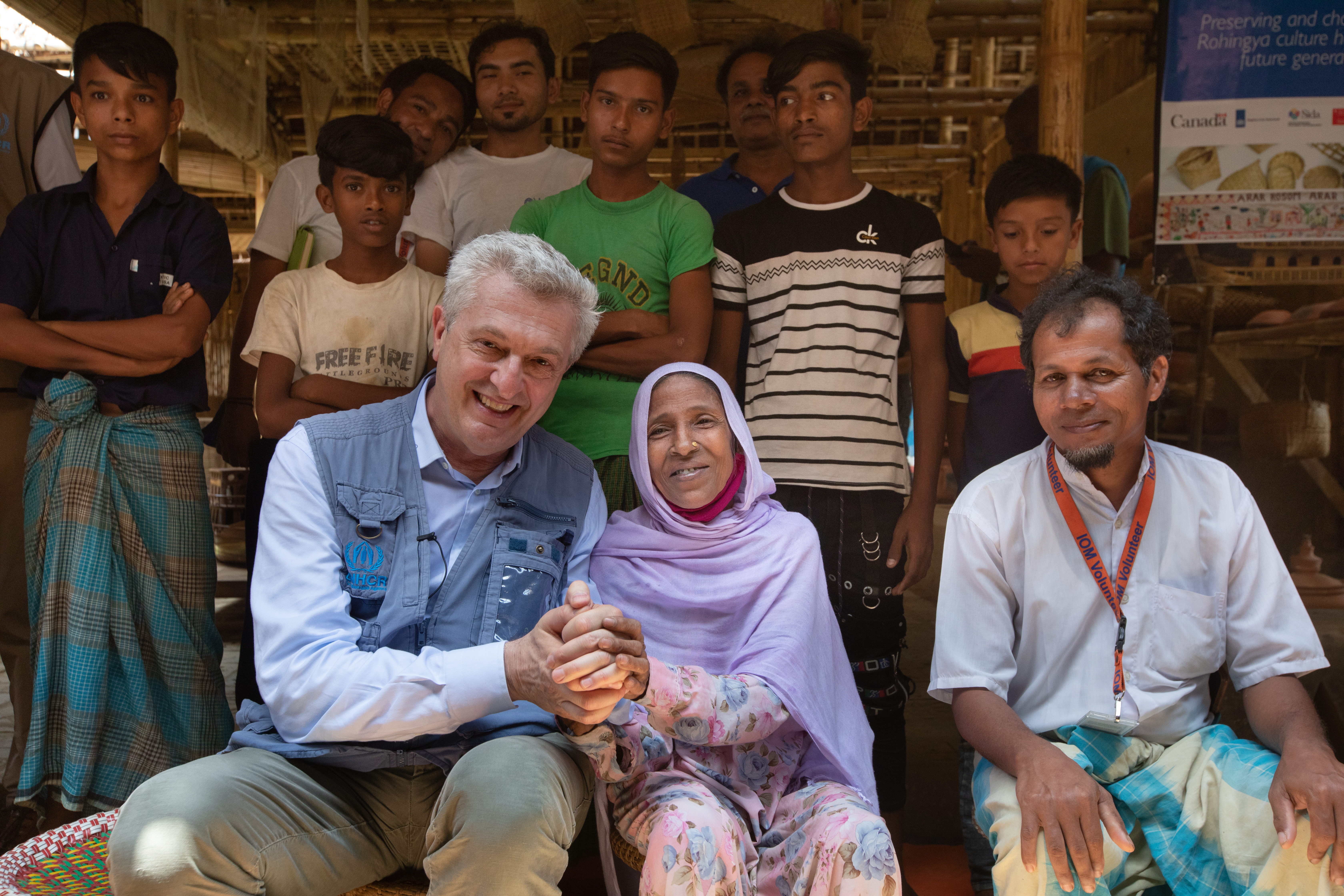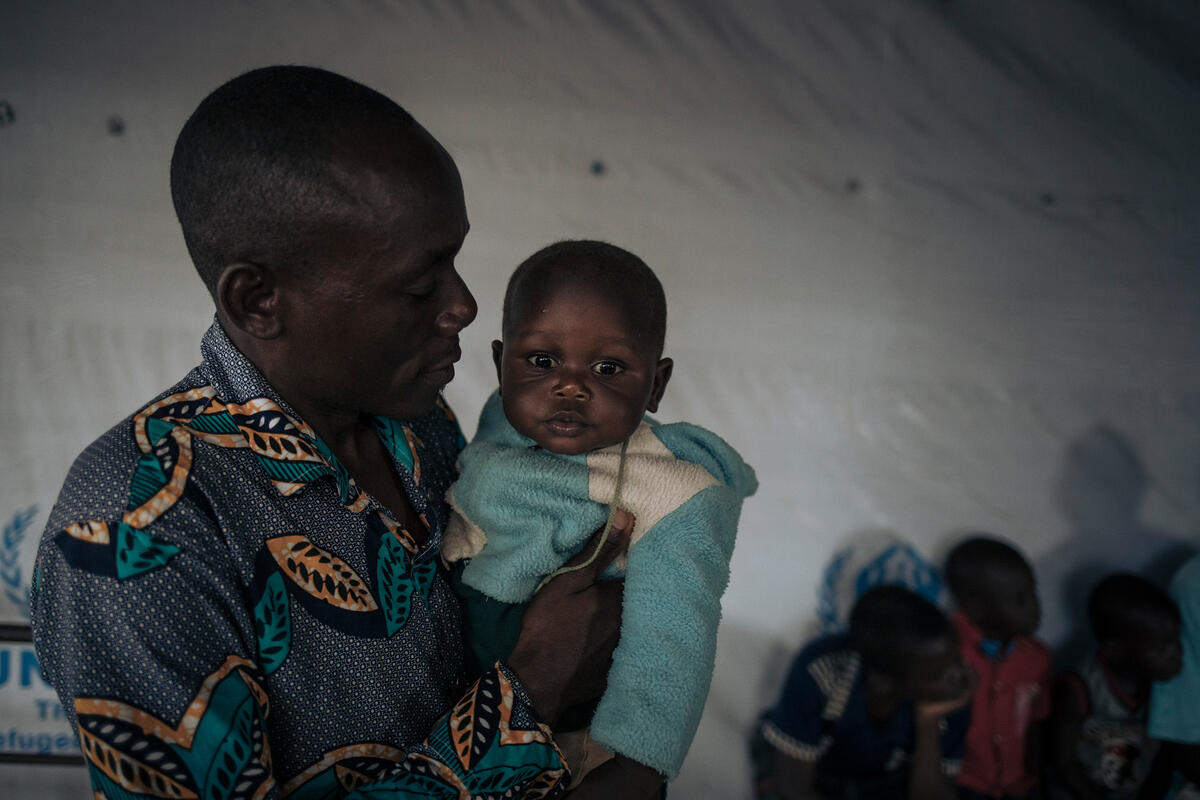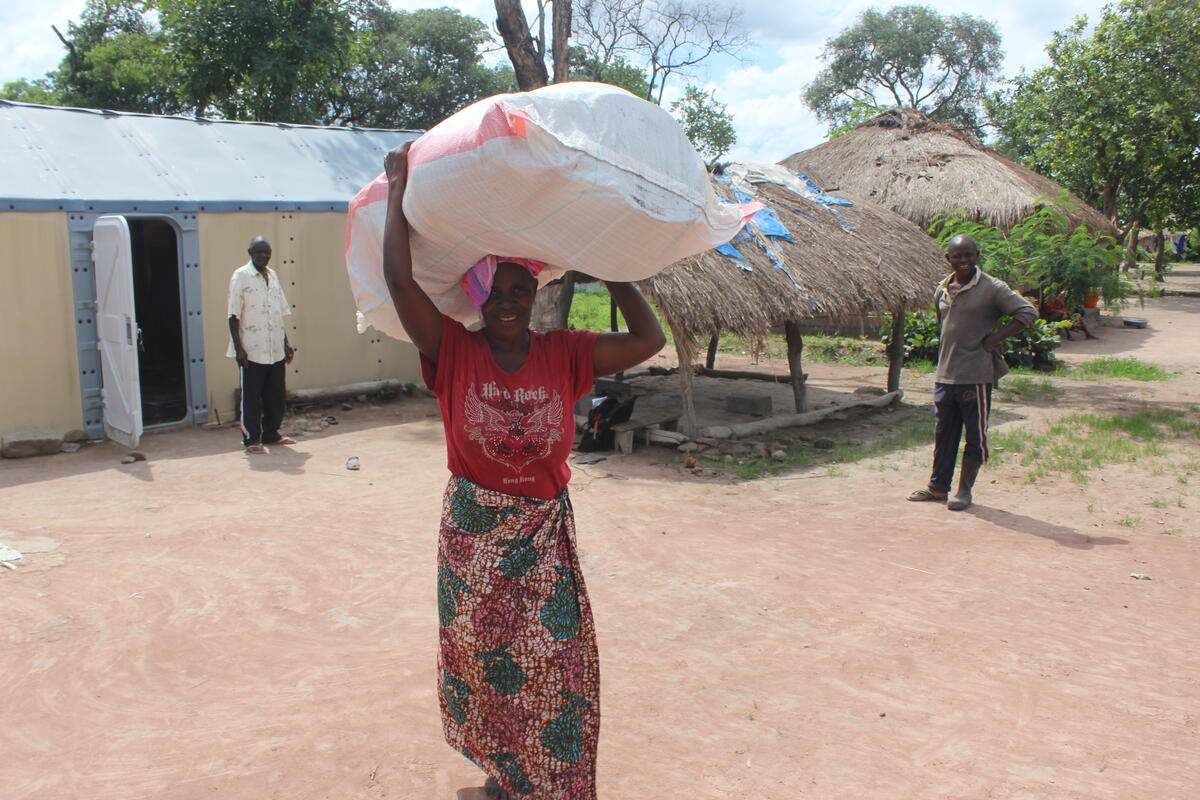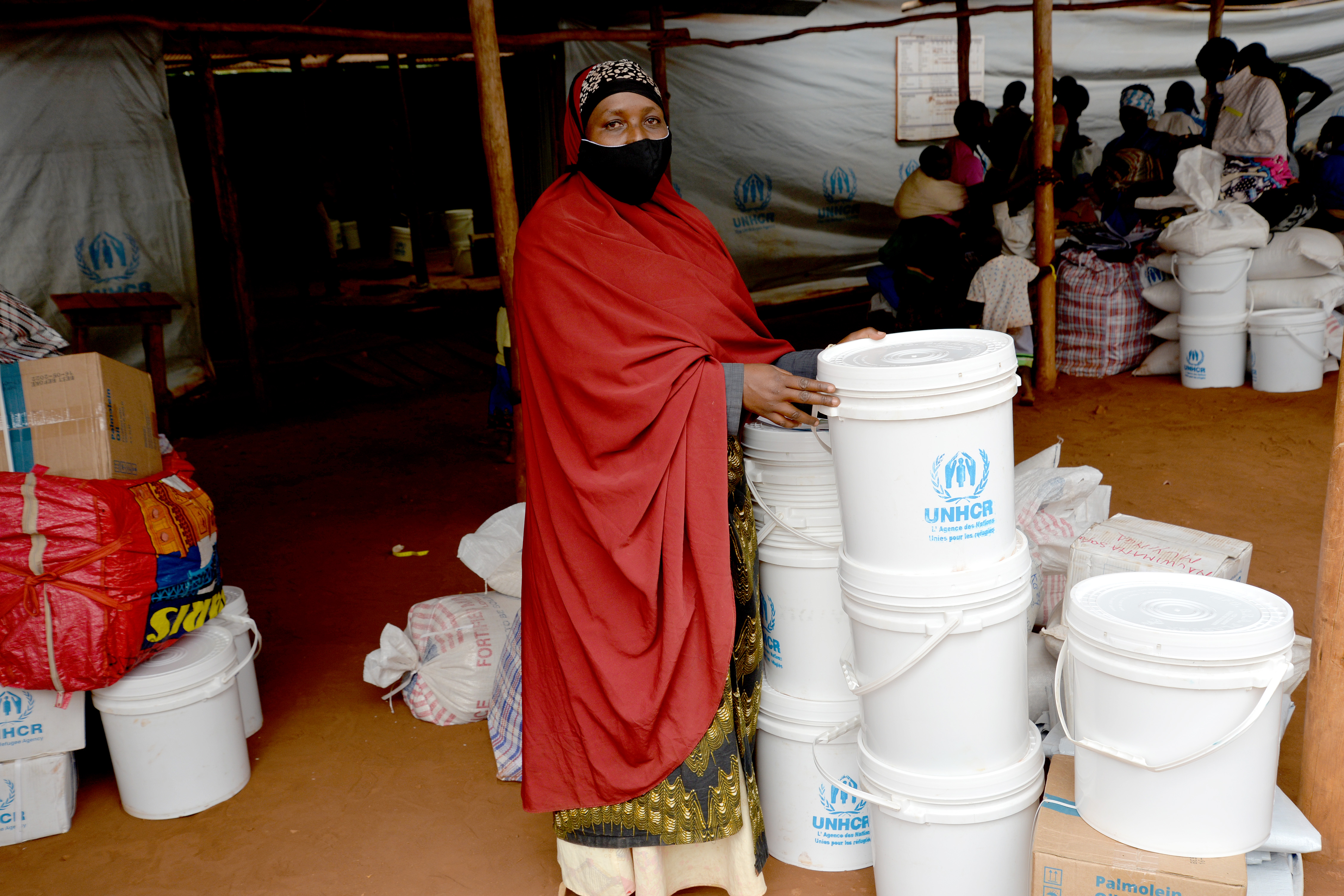UNHCR highlights right to safe return for refugees in Cameroon
UNHCR highlights right to safe return for refugees in Cameroon

YAOUNDÉ, Cameroon, Feb 26 (UNHCR) - UNHCR, the UN Refugee Agency, will work closely with the governments of Cameroon and Nigeria to guarantee the right of refugees to voluntary return in safety and dignity, its top protection official said during a visit to Cameroon this week.
Assistant High Commissioner for Protection Volker Türk restated UNHCR's support for a tripartite agreement between the partners during a visit to refugees living at Minawao camp in Cameroon's Far North Region. The camp provides shelter to more than 50,000 Nigerian refugees.
"We are ready to support crafting a tripartite agreement between Cameroon and Nigeria and UNHCR to ensure voluntary return in keeping with key principles and international protection standards, once conditions allow," Türk said.
Since Nigeria's Boko Haram insurgency carried its terror campaign across the border last year, Cameroon has sent back more than 20,000 Nigerians from militarized border zones. Many have said they had no choice. UNHCR has urged Cameroon and other host countries to keep open their borders and to ensure that those going back do so voluntarily.
The Assistant High Commissioner was in Cameroon to draw global attention to the plight of more than 260,000 refugees from Central African Republic, 70,000 Nigerian refugees and some 158,000 internally displaced people that UNHCR and other partners are helping to protect and assist there.
Before wrapping up his three-day trip on Wednesday, Türk visited refugees in an area where internally displaced Cameroonians and the local population are affected by the militants' attacks.
In Minawao, he met refugee women who cited education for their children, livelihoods and health as being among their most pressing needs. They also expressed concerns regarding return to their villages of origin.
"We urge our government to take all necessary measures to restore peace and stability in the north-east region [of Nigeria] to allow us to return home in safety," said Ali Shouek, one of the refugee leaders.
The issue of security was also foremost for 45-year-old refugee Ibrahima, who lives in exile at Minawao camp. "We really want to return home, but we do not know where to stay there. Our villages have been totally destroyed and the security situation remains uncertain," said Ibrahima.
After a tour of the camp and a nearby transit centre, Türk was moved by the strength and courage of those refugees who, despite their past suffering, are trying to rebuild their life through livelihoods and income generating activities. "What I saw and heard today left me both encouraged and concerned," he declared.
The conflict between government forces and Boko Haram in north-east Nigeria has forced more than 70,000 people to flee to Cameroon, following attacks on their villages in Nigeria's Borno, Adamawa and Yobe states. In addition, the conflict has spilled over into Cameroon, where some 158,000 people are internally displaced in the north.
The Assistant High Commissioner also met senior government officials, donors and UN representatives in Yaoundé before flying out of the country on Wednesday.
By Djerassem Mbaiorem in Yaoundé, Cameroon








